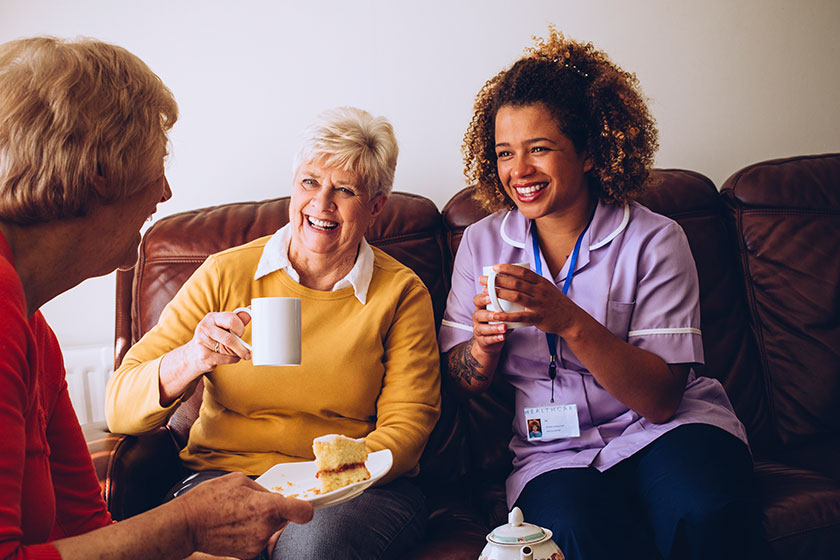When touring prospective retirement communities for a loved one, the infrastructure and amenities certainly matter. However, at the heart of a successful and compassionate environment lie the senior caregivers. Their expertise, approach, and dedication can significantly influence a resident’s experience. Here is how to evaluate the performance of senior caregivers during your visits.
Observing Interactions
- Genuine Compassion: Watch how senior caregivers interact with residents. Their interactions should reflect genuine compassion, respect, and patience. Quick and impersonal actions might be a red flag, while warm, unhurried interactions can be a sign of genuine care.
- Effective Communication: Good caregivers communicate effectively with residents, ensuring they understand and feel understood. They should be attentive listeners, responding to residents’ needs or concerns in a timely and considerate manner.
Professionalism and Training
- Credentials: Inquire about the qualifications and training of the caregivers. A well-trained team will possess certifications or specialized training appropriate for their roles. They should also regularly participate in refresher courses or workshops to stay updated.
- Uniformity and Cleanliness: Professional presentation reflects a certain level of discipline and pride in one’s job. Caregivers should appear neat, tidy, and in uniform (if applicable). This not only represents professionalism but also ensures easy identification within the retirement community.
Knowledge About Resident Needs
Senior caregivers should have a comprehensive understanding of individual resident needs. For those with specific conditions or requirements, such as those in Memory Care, the caregivers should exhibit specialized knowledge and expertise.
Ask questions about hypothetical situations or certain conditions to gauge their understanding. Their responses can provide insight into their experience and the depth of their training.
Proactiveness
A proactive caregiver anticipates the needs of residents before they even arise. This can involve recognizing when a resident might be feeling down and offering emotional support, or noticing early signs of health issues and seeking medical attention.
Respect for Privacy
While touring the retirement community, notice if caregivers knock before entering rooms or if they provide privacy during personal care routines. Respecting a resident’s privacy is an essential aspect of quality care.
Ask About Turnover Rates
Frequent changes in the caregiving team can disrupt the continuity of care and can be unsettling for residents. A stable team indicates job satisfaction, which can translate to better care. If possible, inquire about the turnover rates of senior caregivers within the retirement community.
Involvement in Retirement Community Events
Caregivers should be actively involved in community events, encouraging residents to participate and ensuring their safety during these activities. Their involvement is a sign of dedication beyond routine tasks, contributing to the overall vibrancy of the community.
Availability of Specialized Services
Some residents might require specialized services, such as Senior Assisted Living. During your tour, inquire about the availability of these services and the expertise of caregivers in these domains. Ensure they have the required training and experience to cater to specialized needs.
While the aesthetics and amenities of a retirement community are essential, the human touch provided by senior caregivers is of paramount importance. By understanding how to evaluate their performance effectively, you can make a more informed decision about the best environment for your loved one. After all, quality caregiving lies at the heart of a happy, fulfilling experience in any retirement community.







